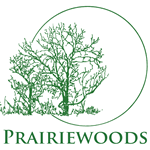“Can love, in its unaccountable weirdness, hope to overcome a culture of individualism built on denying all our millions of kinships and dependencies? That is our central drama now. It’s the future’s one inescapable story, and we are the characters who will steer that conflict to its denouement.”
—Richard Powers, “A Little More than Kin” from Kinship: Belonging in a World of Relations (a five-volume collection edited by Gavin Van Horn, Robin Wall Kimmerer and John Hausdoerffer)
Note: Today’s post is a reflection after reading the essay “A Little More than Kin” written by Pulitzer Prize–winning novelist Richard Powers. What I took away from my reading cannot do justice to his powerful essay, so I highly recommend reading the essay. The link is provided below.
In his essay, “A Little More than Kin” (https://emergencemagazine.org/essay/a-little-more-than-kin/), novelist Richard Powers discusses the concept of “kin altruism,” the idea that humans are genetically predisposed to engage in acts of altruism if it means saving “kin,” or others close to us in genetic make-up. He even shares a mathematical model for kin altruism, developed by evolutionary biologist W.D. Hamilton, who once wrote “in the world of our model organisms … everyone would sacrifice [his own life] when he can thereby save more than two brothers, or four half brothers or eight first cousins.” The closer the kinship, the more likely altruistic action.
As the essay progresses, Powers reports a contradictory truth: there have always been people willing to lay down their lives “on behalf of far fewer shared genes than any mathematics dictates.” And it is this fact that brings the idea of love into sharper focus in his essay.
The Gospel of John (15:13) proclaims, “There is no greater love than to lay down one’s life for one’s friends.” We’ve all known stories of parents who sacrificed their lives to save the lives of their children or examples of selfless altruism to save other human lives, such as Maximillian Kolbe who voluntarily offered his life to save another prisoner in a Nazi concentration camp.
But what do we make of people like Julia Butterfly Hill who climbed a redwood tree and lived in her branches for two years in order to, with Julia’s own body, prevent loggers from harvesting the tree? Or rangers in wildlife sanctuaries who risk their lives against poachers to protect the few remaining members of certain animal species? They have chosen to put their lives on the line not for close genetic relatives, but for members of a much wider family of Earth kin. These choices defy the biologist’s math, speak to the power of love as a motivation for altruism.
They also speak eloquently to the importance of rewiring our language, our thinking and our hearts when it comes to care for our common home and all the relatives with whom we share it. If we begin to speak and think of the spider, the fruit bat, the manta ray and the crown vetch as our “kin,” will we experience a concomitant expansion of our ability to love? If we feel love for these kin, will it create a shift in our hearts such that we willingly sacrifice ourselves (our convenience, our ease, our self-centered worldview) to save them?
Do we as human beings have the capacity of imagination and heart to accomplish this shift from denial of our relatedness to lovingly embracing it? And, most importantly, will this shift alter the equation in favor of life-saving altruism on behalf of our much-extended kin, on behalf of Earth itself?
In his essay, Powers says, “We’re now in the middle of a family emergency that will test all family ties. Only kin, and lots of it, from every corner of creation will help us much in the terrible years to come. We will need tales of forgiveness and surprise recollection, tales in which the humans and the nonhumans each hold half a locket. Only stories will help us to rejoin human to humility to humus, through their shared root. (The root that we’re looking for here is dhghem: Earth.)”
What stories, I find myself wondering after reading this essay, do I have to contribute to the important work of rejoining and reconnecting this great Earth kinship? I have stories about my grandmother the oak, my grandfather the elm and my brother the African fieldmouse. I remember clearly the morning I met my cousin the crayfish, the afternoon I first beheld my auntie the blue heron—reunited with both right here at Prairiewoods. My relations, and my love for them, grow almost imperceptibly as the days pass, until six years later I look at the exponential shift in my perceptions and the expansion of my heart that has taken place since I came to work at Prairiewoods. If I can grow in love through attention and awareness, can’t we all? It may not seem like much to pin the hope of Earth’s survival on, but love has saved the world before, we all know the stories.
Perhaps love will save it again.
—Jenifer Hanson, Prairiewoods director


